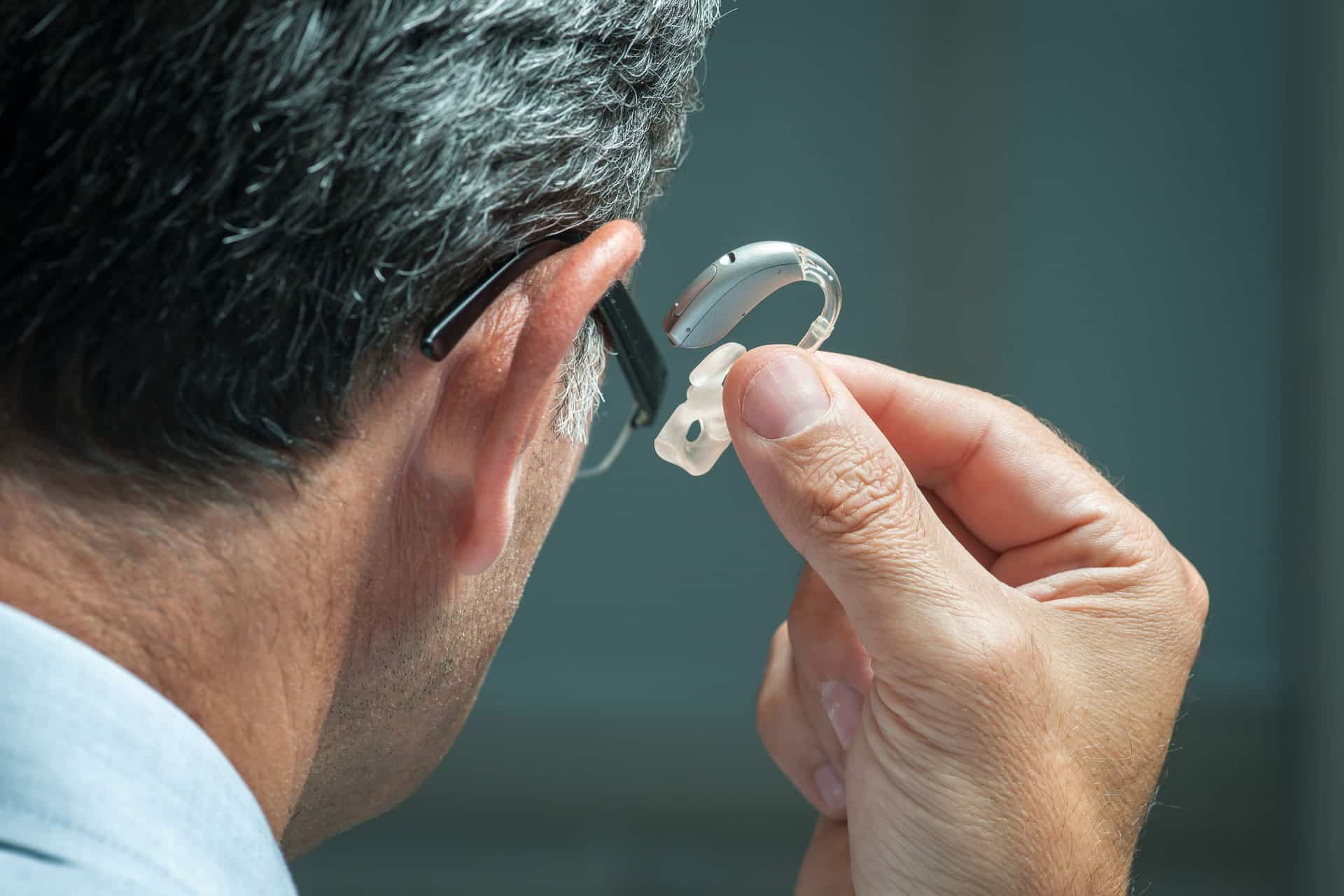Delivery in 2-3 working days
Hearing loss: What to do in the event of sudden hearing loss?
If the ability to hear suddenly decreases, if hearing problems or even hearing loss occur unexpectedly, a sudden hearing loss may be the cause. Ringing in the ears or an unpleasant pressure can be the first signs and should therefore always be taken seriously to prevent permanent damage to your hearing.
In the following, we would therefore like to take a closer look at the topic and clarify the questions of how sudden hearing loss occurs, what the causes of sudden hearing loss can be and what you can do if you are affected.
What is sudden deafness?
Sensorineural hearing loss is the sudden onset of sensorineural hearing loss. Hearing problems (sensorineural hearing loss) or hearing loss occur, usually without an obvious cause such as an illness or noise. It is therefore also referred to as an ear infection. The problems usually occur on one side, i.e. in one ear. While some people hardly notice the hearing loss, others have noticeable symptoms.
Recognizing sudden hearing loss: How do I recognize that I have a sudden hearing loss?
In many cases, sudden hearing loss occurs very suddenly. It comes unexpectedly and begins with a ringing in the ears(tinnitus). This is usually followed by hearing loss or, in severe cases, hearing loss. Often certain pitch ranges, i.e. either low, medium or high tones, can be perceived less well. A distinction is therefore also made between low-frequency hearing loss, mid-frequency hearing loss and high-frequency hearing loss.
Other possible symptoms of sudden hearing loss include
- a dull feeling in the ear
- a feeling of ear congestion ("absorbent cotton in the ear")
- Voices, television and music etc. sound strange
- Tinnitus or other ringing in the ears
- Dizziness or loss of balance
- Rarely: Accompanying earache
Hearing loss can occur at any age, in both men and women. However, the most common age is around the age of 50. Children very rarely suffer from sudden hearing loss.
For many people who have a sudden hearing loss, the symptoms subside and disappear after a few hours or days. Nevertheless, if you recognize the symptoms, you should consult an ear, nose and throat specialist for further clarification.
Where does sudden sudden deafness come from?
A sudden hearing loss is a form of sudden inner ear hearing loss. The causes are often unclear. Factors that are considered possible triggers in medicine and research include stress or viral infections as well as circulatory disorders in the inner ear. Other reasons discussed for sudden hearing loss include autoimmune diseases, diseases such as Meniere's disease (seizure-like rotary vertigo) or noise trauma.
A sudden loss of hearing is not always the reason for suddenly hearing worse. Earwax in the ear canal can also lead to a muffled sound in the ear. An ear, nose and throat specialist can easily determine the cause by carrying out an examination.
Hearing loss diagnosis:
A sudden hearing loss is not a medical emergency, but you should consult a doctor if you experience the typical symptoms in order to receive a prompt diagnosis and appropriate treatment. This is important to avoid long-term damage such as hearing loss.
With a series of examinations and by ruling out other illnesses, the ENT doctor can determine whether it is a case of sudden hearing loss.
When taking your medical history, your doctor will ask you about your symptoms, possible illnesses and also about your lifestyle. Your ears will then be examined in detail. This allows other causes of hearing loss, such as earwax, to be ruled out.
An otoscopy or otoscopy provides information about the health of your external auditory canal and eardrum. Tympanometry can also be helpful. This examines the condition of your middle ear, or more precisely the mobility of the eardrum, as well as the tympanic cavity (tympanum) and the ossicles.
Hearing tests can be helpful for further examinations as part of the diagnosis of sudden hearing loss.
To rule out possible infections and inflammations as the cause of the hearing loss, your doctor may take blood for a blood test.
If the hearing loss occurs suddenly and has no recognizable cause, the diagnosis is usually sudden hearing loss.
How long does a sudden hearing loss last?
The duration of a hearing loss and its symptoms can vary depending on the severity and cause.
In many cases, an improvement occurs within 24 hours. The symptoms disappear by themselves. However, complete recovery can also take considerably longer, up to 14 days, provided you receive the right treatment. As with many other illnesses, the earlier you see a doctor and start treatment, the better the chances of being cured or shortening the duration of the healing process.
How is sudden hearing loss treated?
The treatment of sudden hearing loss usually depends on the diagnosis by an ENT specialist and the respective causes. The doctor decides which treatment method promises the best chances of recovery.
Treatment is often carried out with high-dose guocorticoids, which include cortisone. Cortisone tablets are intended to alleviate the symptoms of sudden hearing loss and support healing.
If the symptoms do not improve despite treatment and permanent hearing loss or sensorineural hearing loss occurs, it is often necessary to use hearing aids or electronic hearing prostheses such as cochlear implants.
Prevent sudden hearing loss: Prevention
Even if you cannot directly prevent a sudden hearing loss, there are a few recommendations that can help to reduce the risk:
- Reduce stress in everyday life: Stress is often diagnosed as the cause of sudden hearing loss. Therefore, allow yourself enough relaxation and breaks in everyday life and also get enough sleep. Regular exercise can also help. Your hearing will thank you for it!
- Avoid noise: Loud music, street noise, noise at work, etc. can cause your hearing to suffer. Hearing protection can help.
- Eat a healthy diet: A healthy lifestyle and a healthy diet are the basis for a healthy body. This also applies to the ears.
- Have your hearing checked regularly: Regular check-ups and hearing tests help to detect possible illnesses and hearing problems at an early stage.



